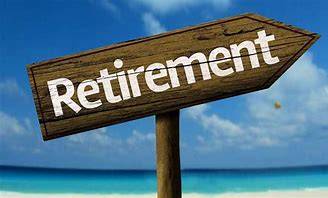Planning for Retirement in Your 20s, 30s, 40s, and Beyond
Retirement may seem far off when you're in your 20s, 30s, or even 40s, but starting your planning early can make a significant difference in your financial security later on. Whether you’re just beginning your career or are well-established in your profession, it’s essential to have a strategy in place. Here’s a decade-by-decade guide to help you plan for retirement effectively.
In Your 20s: Start Early and Build a Foundation
The earlier you start planning for retirement, the more time your money has to grow. Here are key steps to take in your 20s:
Educate Yourself: Take the time to learn about retirement accounts like 401(k)s and IRAs. Understand how compound interest works and how it can benefit your savings over time.
Start Saving Early: Aim to save at least 15% of your income for retirement. If your employer offers a 401(k) match, contribute enough to take full advantage of that benefit.
Create an Emergency Fund: Before focusing solely on retirement, ensure you have an emergency fund to cover 3-6 months of living expenses. This safety net can prevent you from tapping into your retirement savings in case of unexpected expenses.
Set Goals: Identify your long-term financial goals, including retirement. Consider factors like your desired retirement age, lifestyle, and location, which can all affect how much you need to save.
In Your 30s: Increase Contributions and Diversify Investments
As you settle into your career, it's time to ramp up your retirement planning:
Increase Your Savings Rate: If you haven’t already, aim to save at least 15-20% of your income. If you receive raises or bonuses, consider allocating a portion of that income toward your retirement savings.
Diversify Your Investments: As you grow your savings, explore various investment options to diversify your portfolio. This can include stocks, bonds, and mutual funds. The right mix depends on your risk tolerance and retirement timeline.
Review Your Financial Goals: Reassess your retirement goals and make adjustments as needed. Consider life changes, such as marriage or buying a home, which can impact your savings strategy.
Consider a Side Hustle: If feasible, explore side jobs or freelance work to boost your income. Additional earnings can be directed toward retirement savings or debt repayment.
In Your 40s: Optimize Your Strategy and Catch Up
As you enter your 40s, it's crucial to optimize your retirement strategy:
Maximize Contributions: If you're able, increase your contributions to your retirement accounts, especially if you haven’t met your savings goals. Take advantage of catch-up contributions available for individuals aged 50 and older.
Evaluate Your Investment Strategy: Review your investment portfolio and make necessary adjustments to align with your risk tolerance and retirement timeline. As you approach retirement age, you may want to gradually shift towards more conservative investments.
Plan for Future Expenses: Consider future financial obligations, such as funding your children's education or caring for aging parents. Assess how these factors impact your retirement savings strategy.
Consult a Financial Advisor: If you’re unsure about your retirement strategy, consider consulting a financial advisor. They can help you create a tailored plan that meets your needs.
In Your 50s and Beyond: Fine-Tune and Prepare for Retirement
As you near retirement, focus on fine-tuning your strategy:
Revisit Your Retirement Goals: Take a close look at your retirement goals. Consider how much you’ll need to retire comfortably, factoring in healthcare, living expenses, and lifestyle choices.
Maximize Savings Opportunities: Continue maximizing contributions to retirement accounts. If you're over 50, make use of catch-up contributions to boost your retirement savings.
Reduce Debt: Aim to pay off high-interest debts, such as credit cards or personal loans, before retirement. This can free up more income for savings and living expenses in retirement.
Explore Retirement Income Options: Research different sources of retirement income, such as Social Security, pensions, and annuities. Understanding these options will help you create a comprehensive retirement plan.
Prepare for Healthcare Costs: Consider setting aside funds specifically for healthcare expenses, as these can significantly impact your retirement budget. Explore Health Savings Accounts (HSAs) if eligible.




No comments yet
Be the first to share your thoughts!